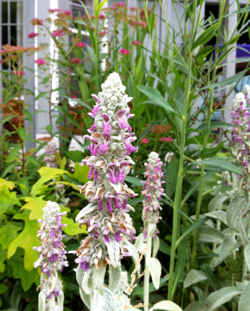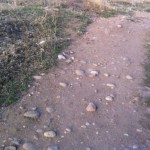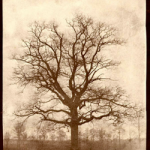A love letter to my fellow therapists, doctors, nurses, healers
I know how much you want to help each client who comes to you. I know how hard you work and study to help them. I am right there with you; I have been a healer of one sort or another for over 25 years. I know how much you care for your clients and want to help them heal.
You love them and want to help. But what if you actually have very little control over whether your client improves and heals or not? What if your clients are in charge of what happens in each and every healing session, NOT you? And what if being a healer or therapist no longer meant you were supposed to have the answers, or know how to fix your clients’ problems? What if being a great healer / therapist / doctor does NOT involve dispensing advice and healing wisdom to the suffering masses like some kind of Healer Dear Abby?
How would embracing your lack of control change your healing practice?
Each client holds the keys to their own healing. Every client has their own answers – even if they don’t believe it yet! At best, you can be a helpful conduit or sounding board – someone who helps your clients find a new perspective on their personal journey of self-discovery and self-healing. At worst you will try to take charge and actually get in the way of their healing.
Stop and take a breath. Give yourself a moment to grasp the idea that you are NOT in charge and you CANNOT CONTROL if and when, much less how your client heals. Each client is responsible for whether they heal or not. Does this lack of control and responsibility for your clients’ healing fill you with relief or infuriate you?
No matter what you do or say, no matter how many classes you take or how good your therapy techniques are, your client will choose whether they heal or not. You don’t control that, they do. If one of your clients heals, it is NOT because you did an absolutely flawless massage, gave them the perfect pill or performed the best sphenoid release in the Midwest. It is not because you said just the right thing or executed a flawless lymphatic drainage routine. People have been healing from all kinds of illnesses and pains for thousands of years before your favorite drug or healing modality was even invented. And isn’t obsessing about technique how we healers handle our own discomfort with not knowing how to make everything all better for everyone? Honestly?
This idea of the client being responsible for their own healing probably bursts all your fantasies about “if I just get really good at the right and perfect technique, then my clients will heal.” In my experience, there is no silver healing bullet – so stop looking for the “perfect” therapy, the “perfect” medication or herbal remedy, the “perfect” modality. Besides, that search for the perfect healing tool will only make you feel like a failure over and over and over again.
Open to the possibility that you have never been in charge of anyone else’s healing and see what happens for you and your clients. Remember that it is their body, their mind, their emotional reactions that determine how much healing happens in each session with you. Each client comes to you with a unique set of issues and strengths. Each client will heal in their own unique and unpredictable ways. If you want predictable outcomes, give up healing work and become an engineer.
So, if you cannot control the outcome of healing sessions with your clients, why be a healer at all? What is the point? How can you help anyone?
Before you throw in the towel and completely give up healing work in despair, try a few radical healing acts in your sessions. Shift your focus and see what kind of healing magic is possible:
- Consciously turn control of the session over to your client and their spiritual source. And share with each client how large and in charge they actually are! Help them to access their own wisdom and their own power, rather than relying on yours. Every time you feel shaky or uncertain about what you are doing and if you are helping, take a breath and turn control over to your client and spirit.
- Your mental and emotional state matters way more than ANY therapeutic technique or modality you use in a session. Keeping an open heart and an open mind has a big impact. Be aware of how you approach each client – what thoughts are running through your head, what emotions are surfacing? Are you getting caught up in needing to find the answer – or can you take a breath and let your client flounder around and discover for themselves what they need?
- In each session, hold space for what else is possible. No matter what has happened for this client before, lasting healing is possible now. Hold the knowing that your client can heal whatever is ailing them – even when they have lost faith. Even when neither one of you has any idea exactly when or how healing might occur. Even when healing seems impossible, you can hold the memory of how other clients have shifted and found balance and healed. Hold the awareness that human bodies heal in amazing and miraculous ways every day. Set an intention in each and every client session that healing is possible, that healing is just a breath away – even when you have no clue how it can occur. Set a healing intention that your clients truly can shift and heal now.
- Shut up and listen. Do you know how rare it is to find someone who will actually LISTEN? The simple act of listening is profoundly healing. Try listening instead of grasping for answers. Try listening and NOT giving advice! And try asking your client what they like, what feels good and healing to their body, what would help them right now. Can you stop assuming you know what they need? Can you respect and honor your clients enough to put your ego aside and follow their lead? Make it your priority to create a space where clients can find their own answers.
Each client who comes to you is on THEIR own personal healing journey, not yours. So, take a big breath, smile at your silliness and learn to let go of control. You never really had it anyway.



